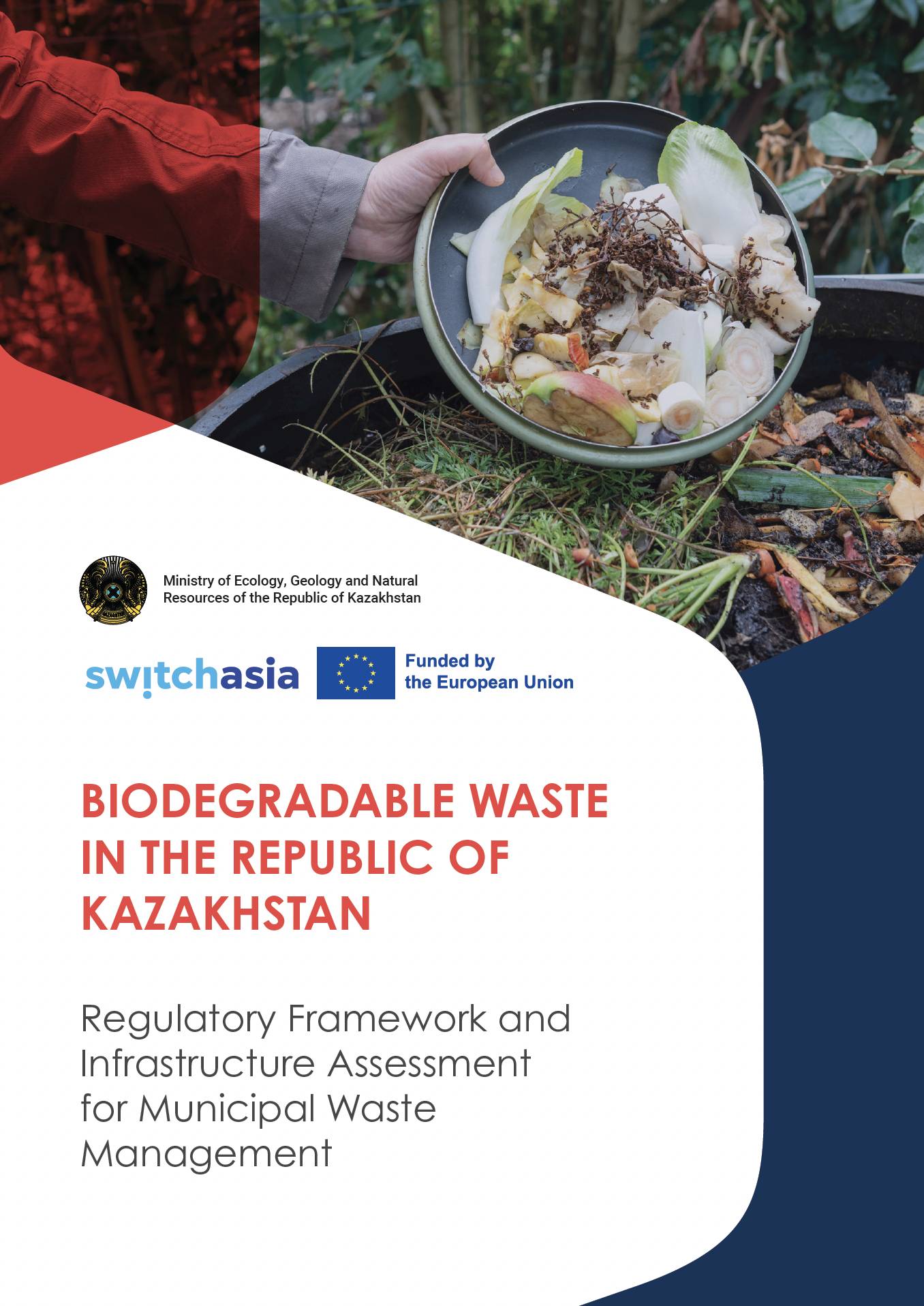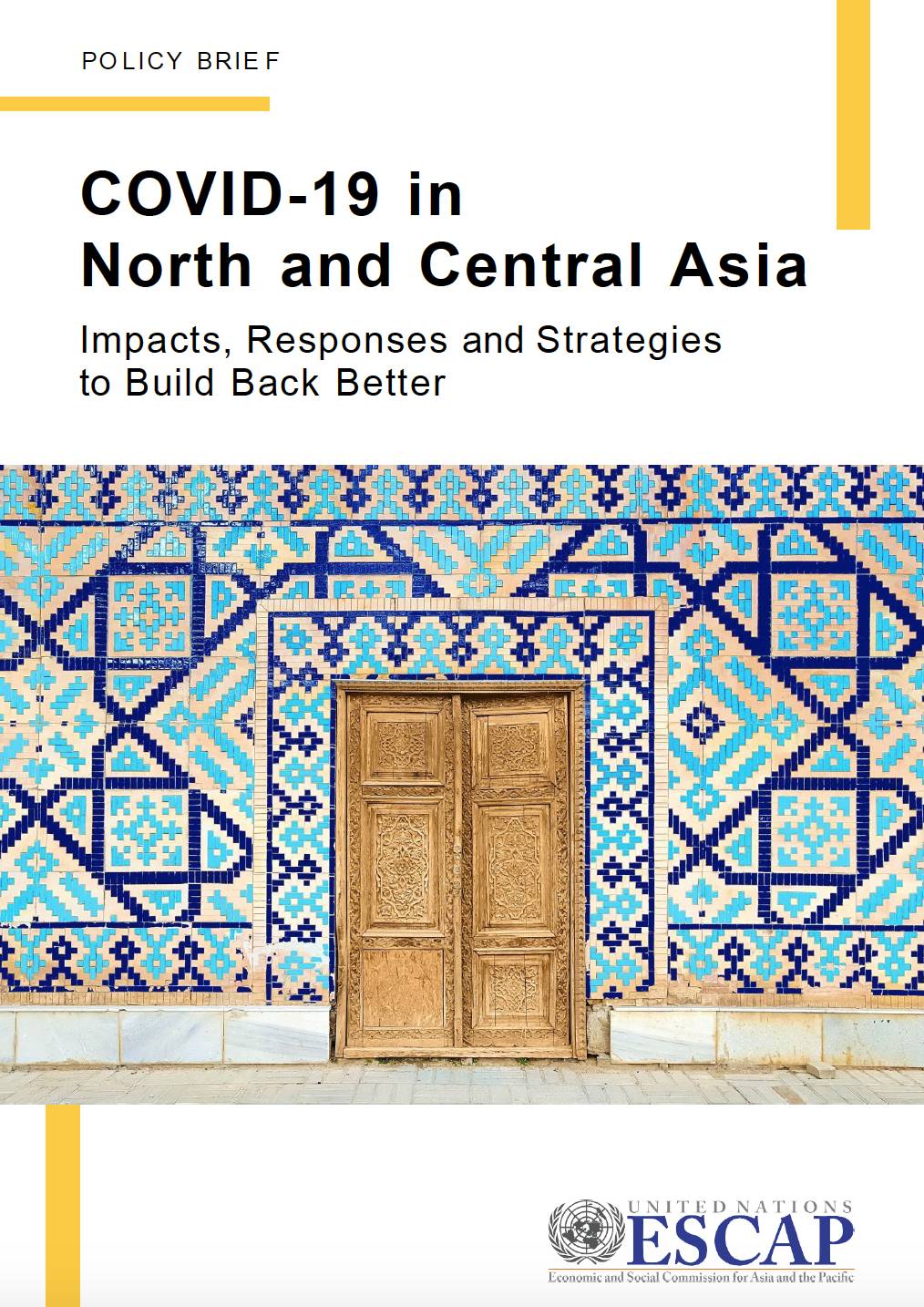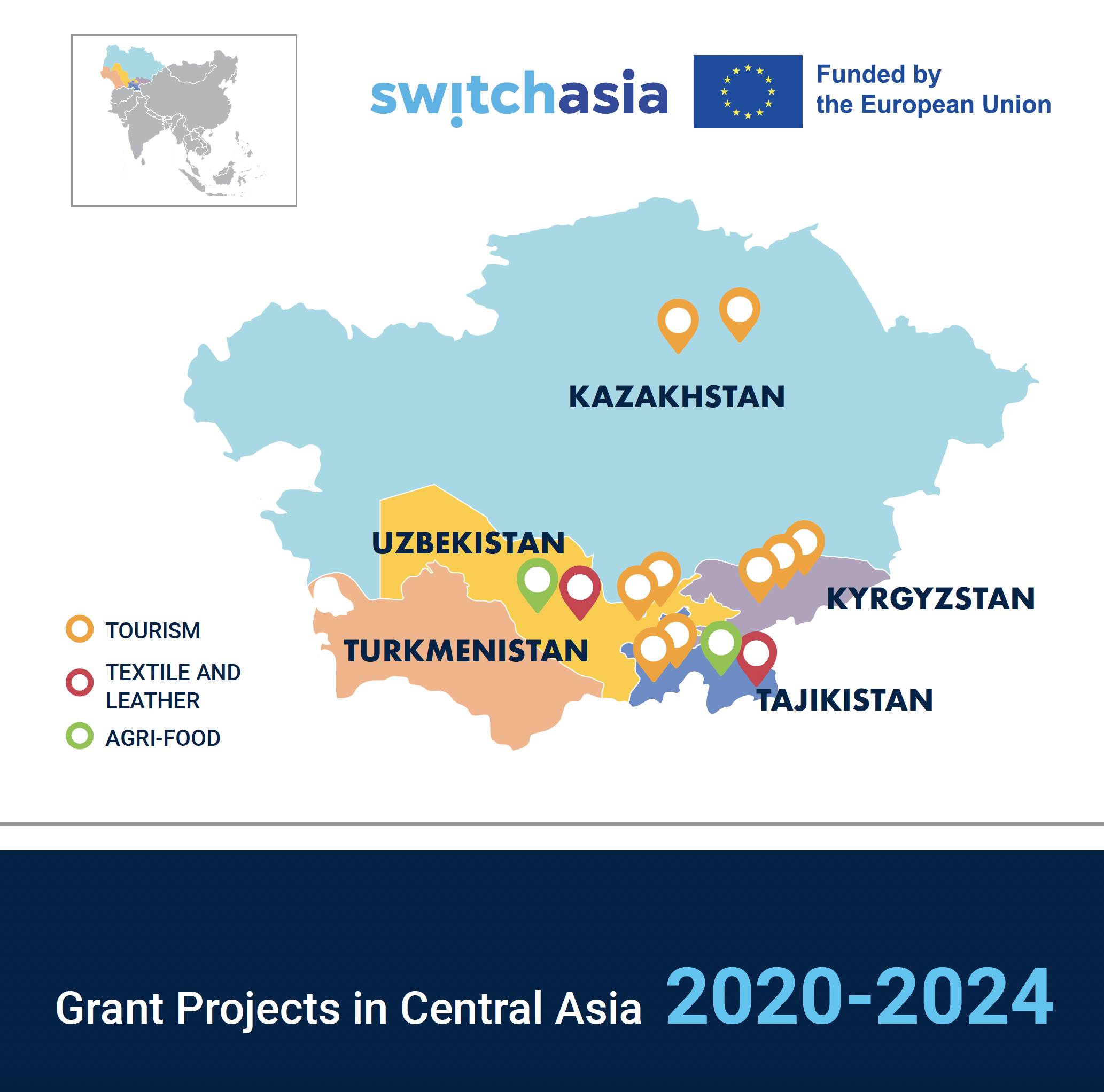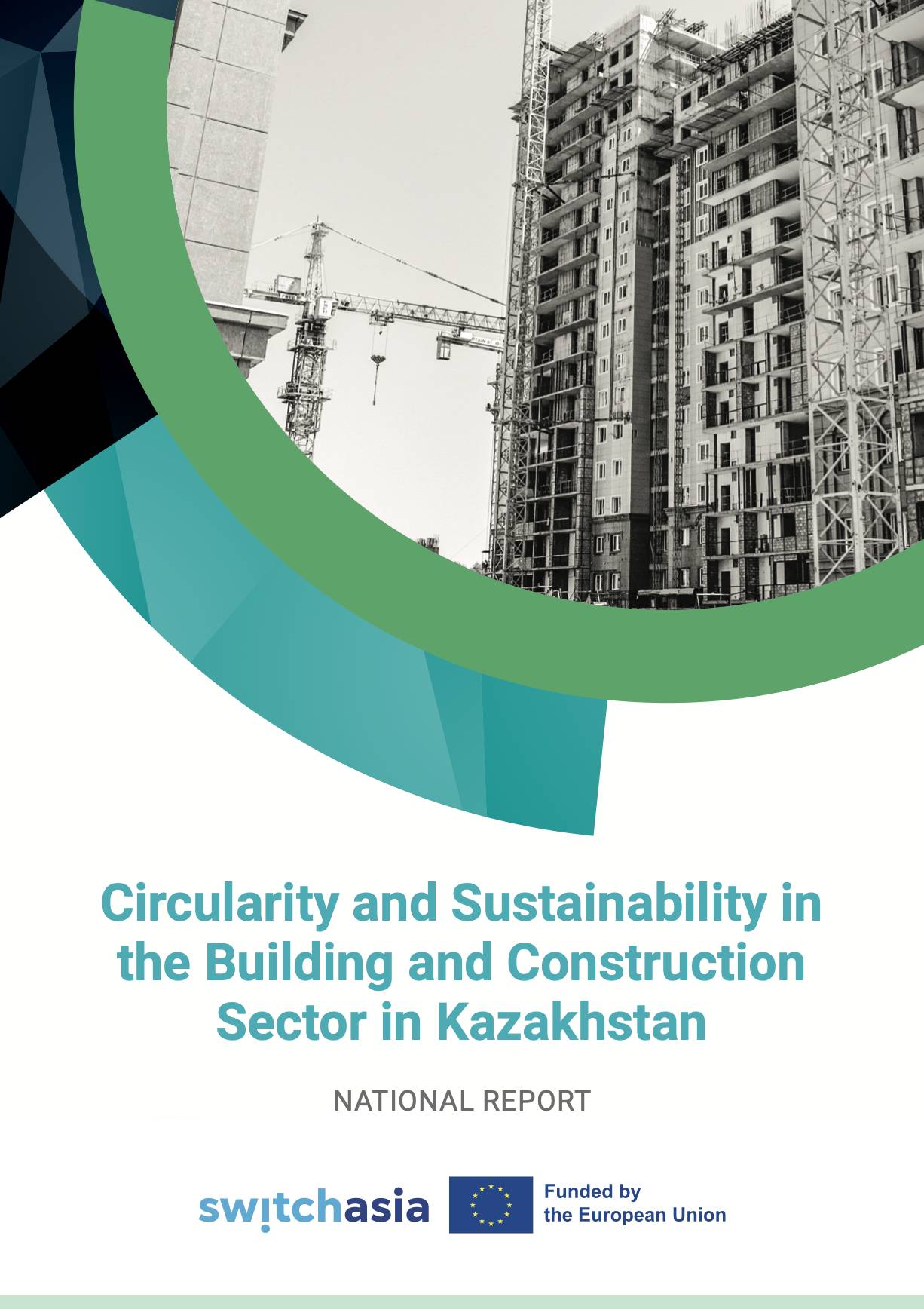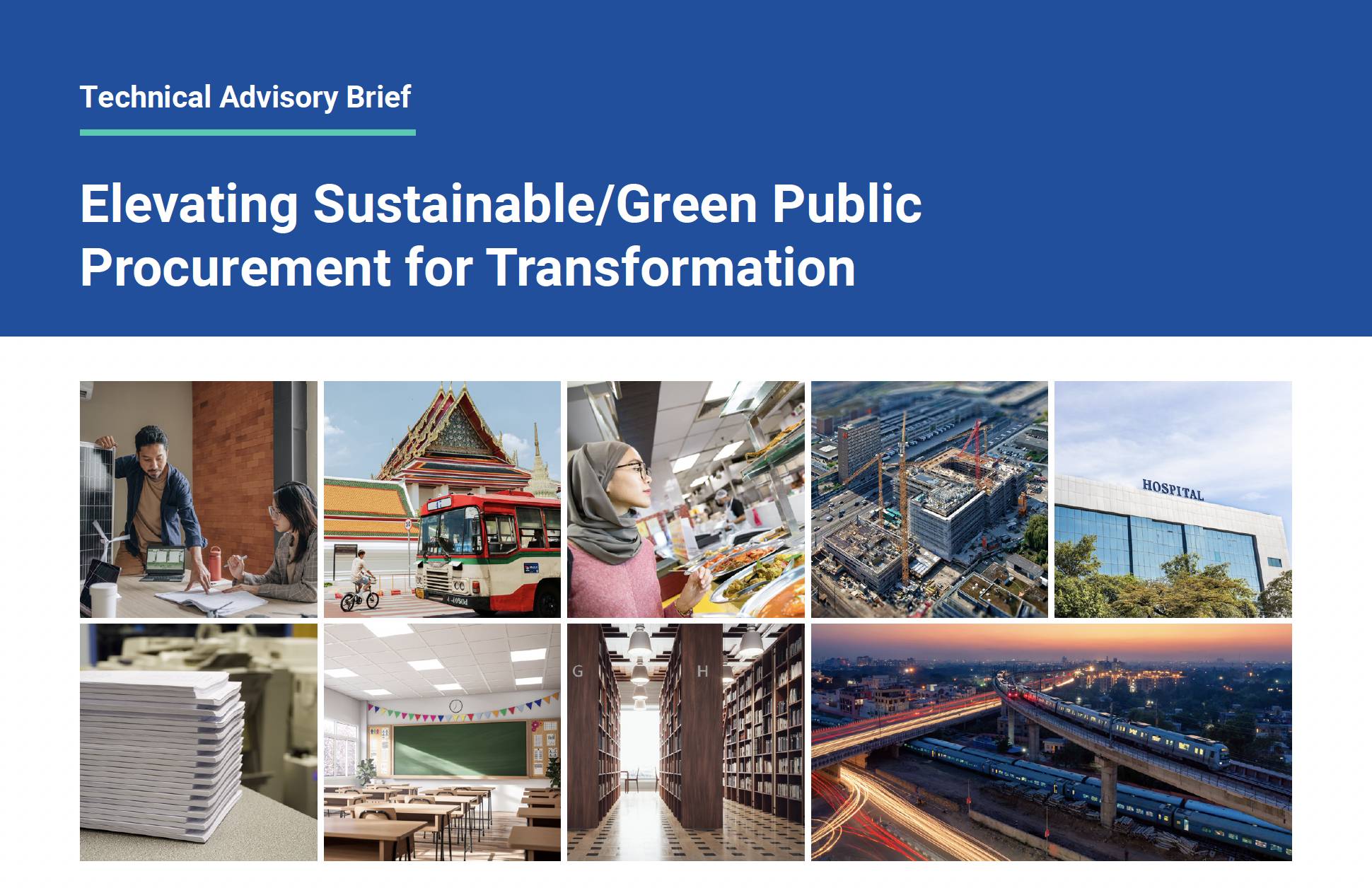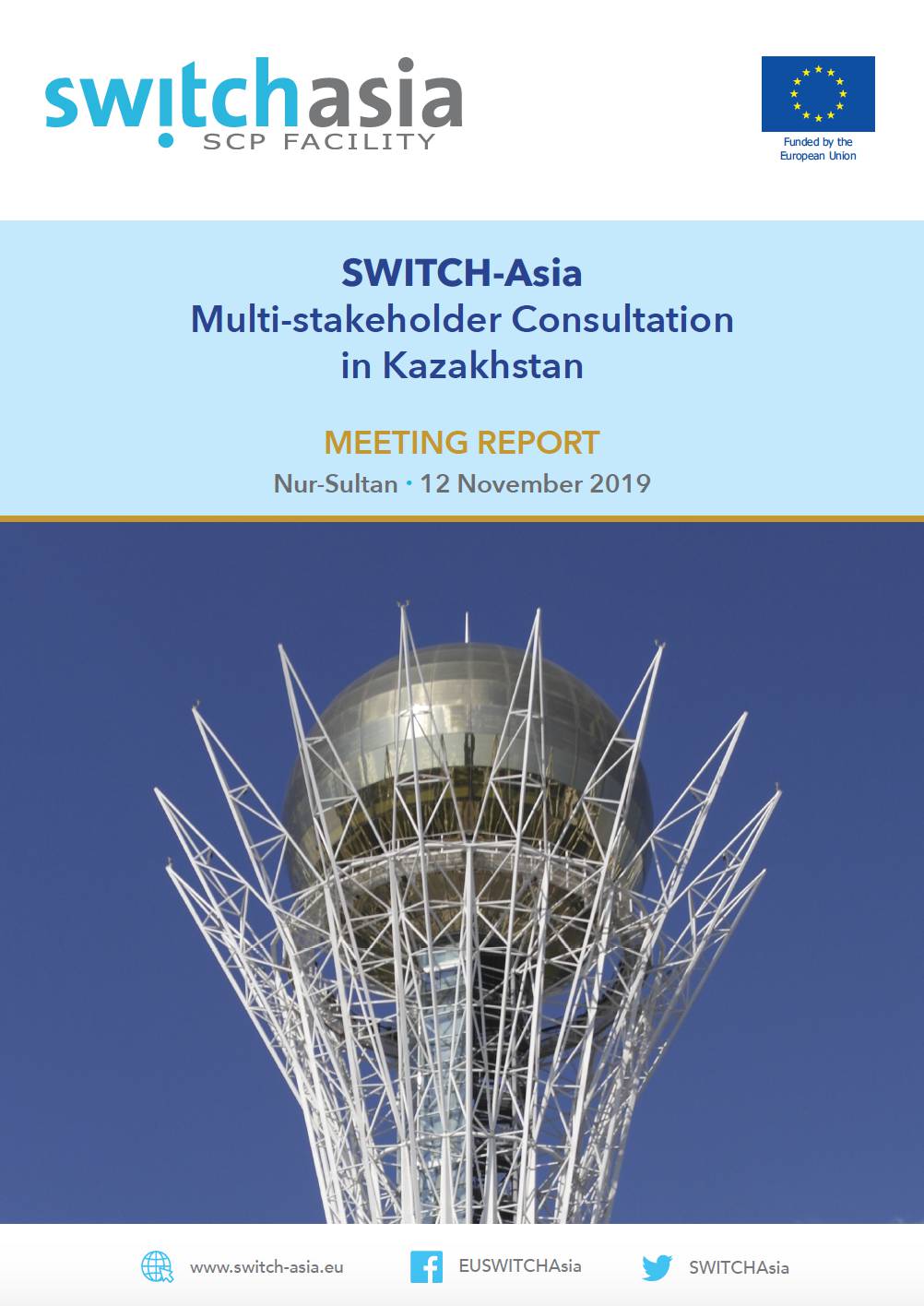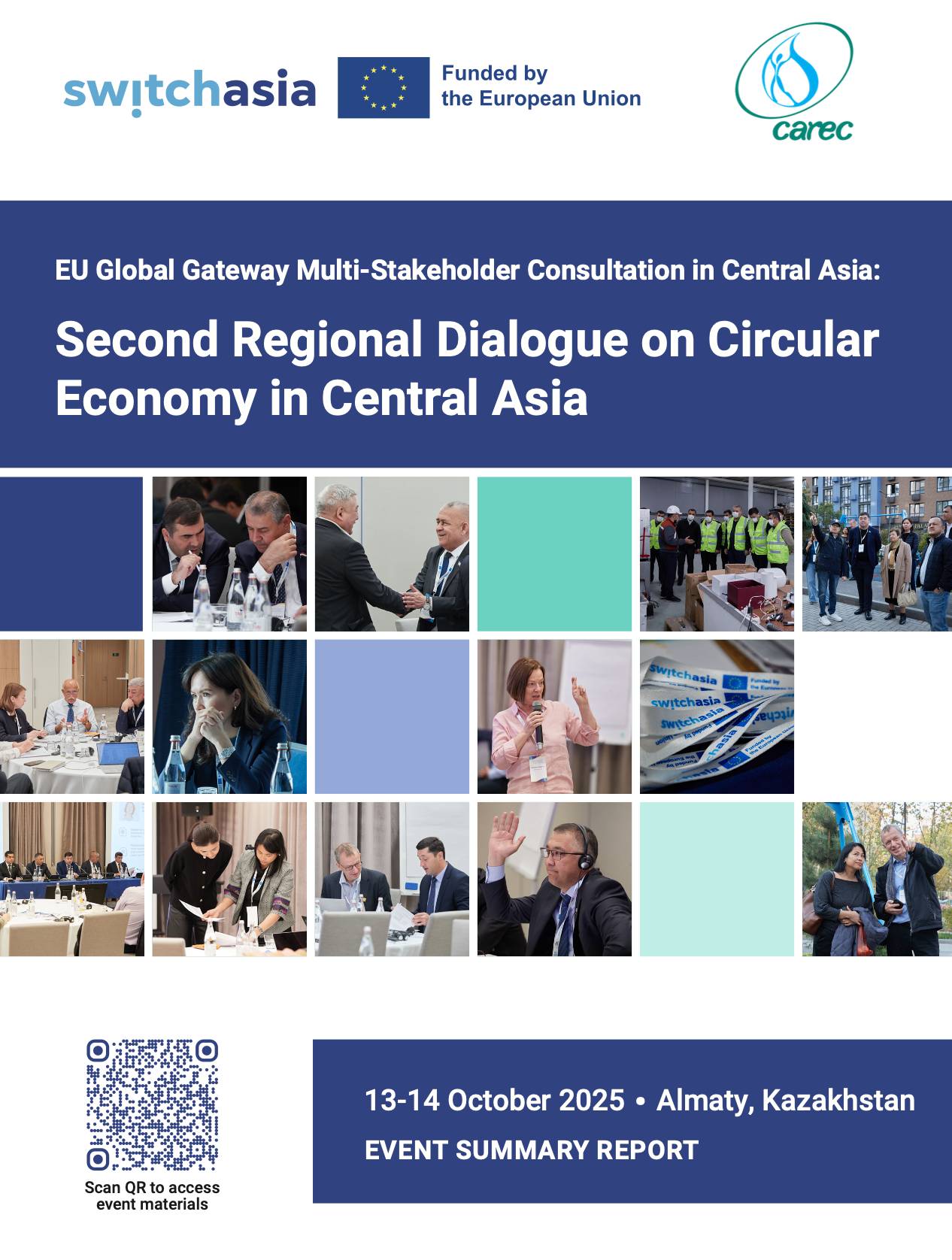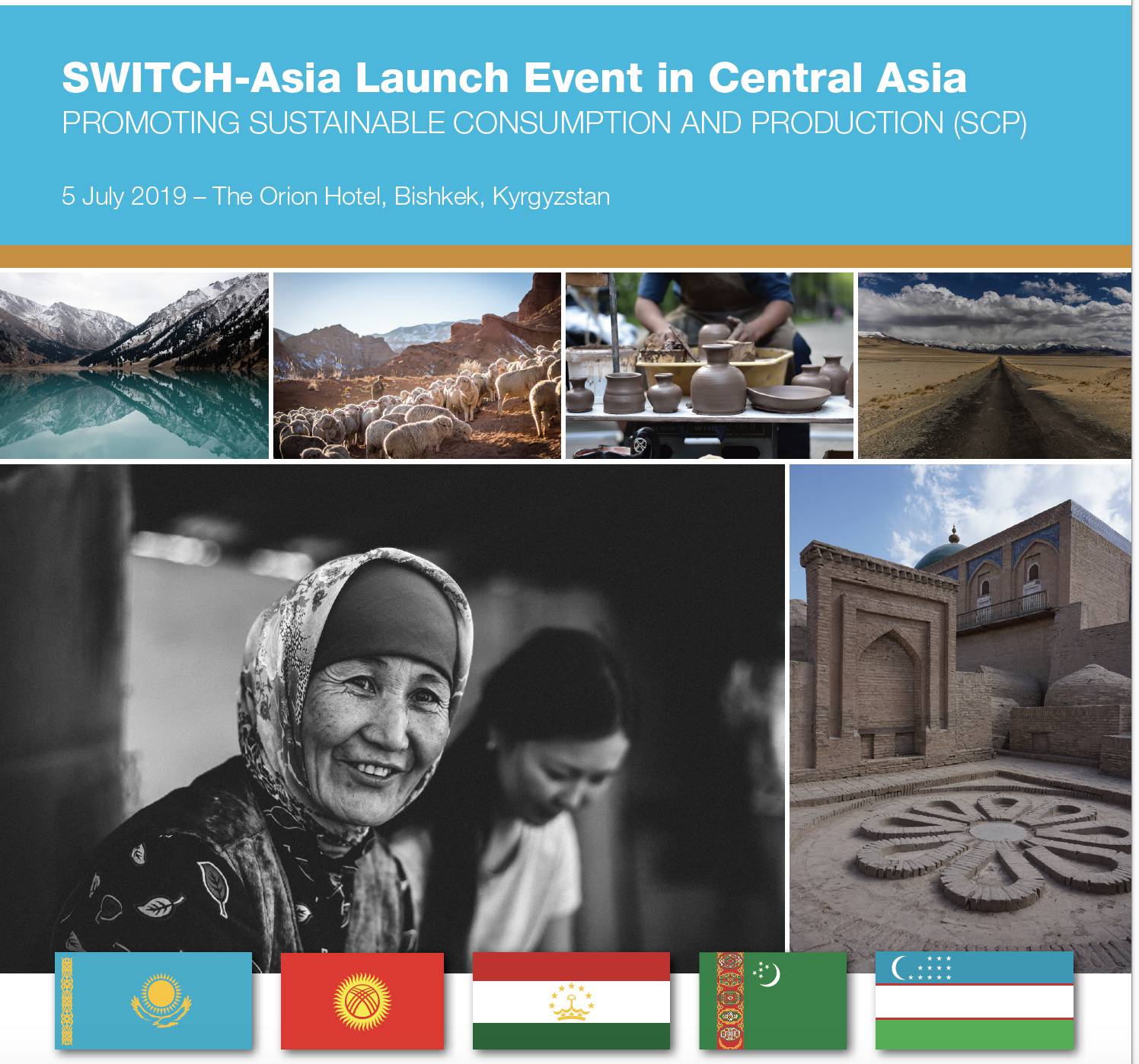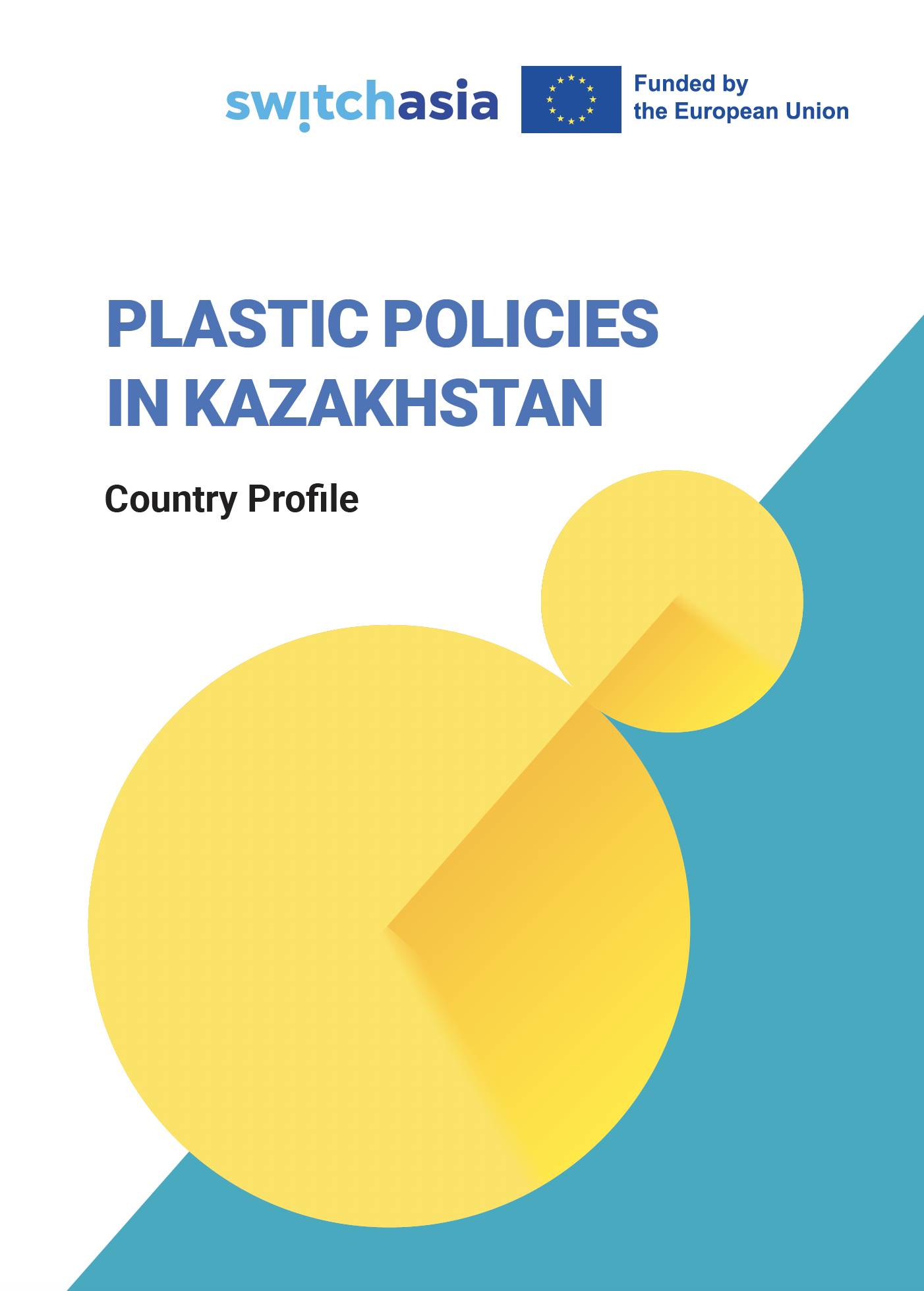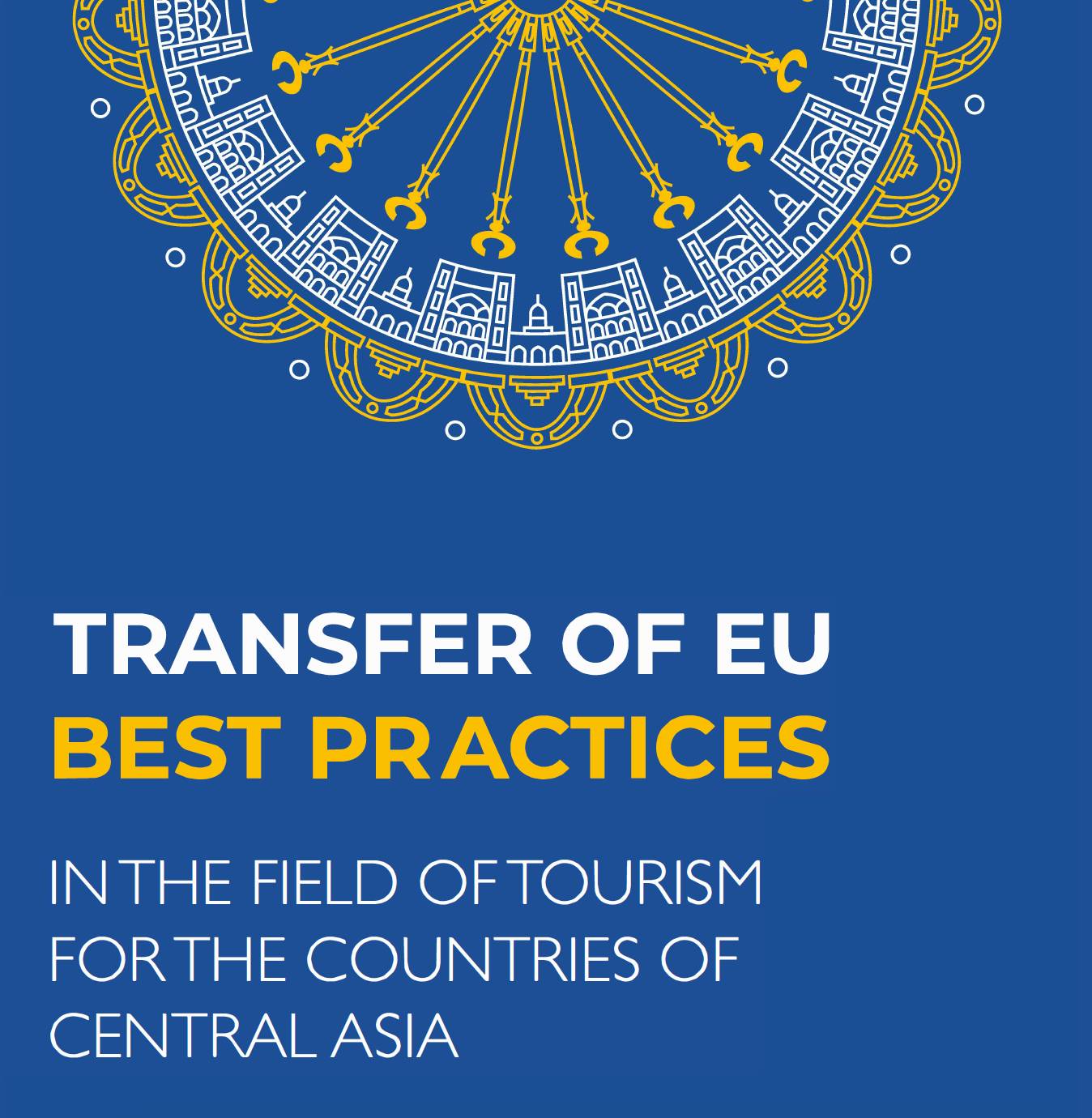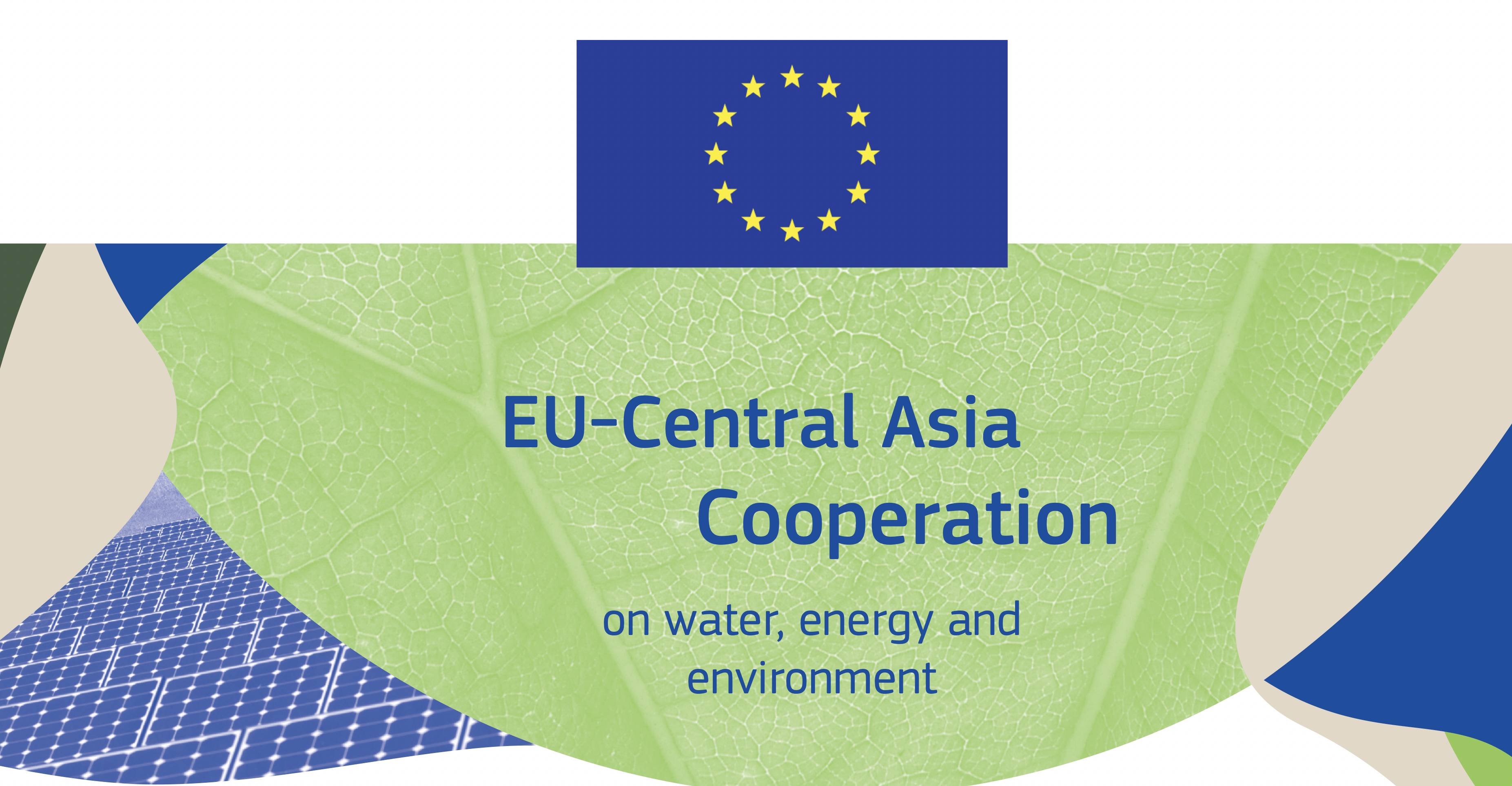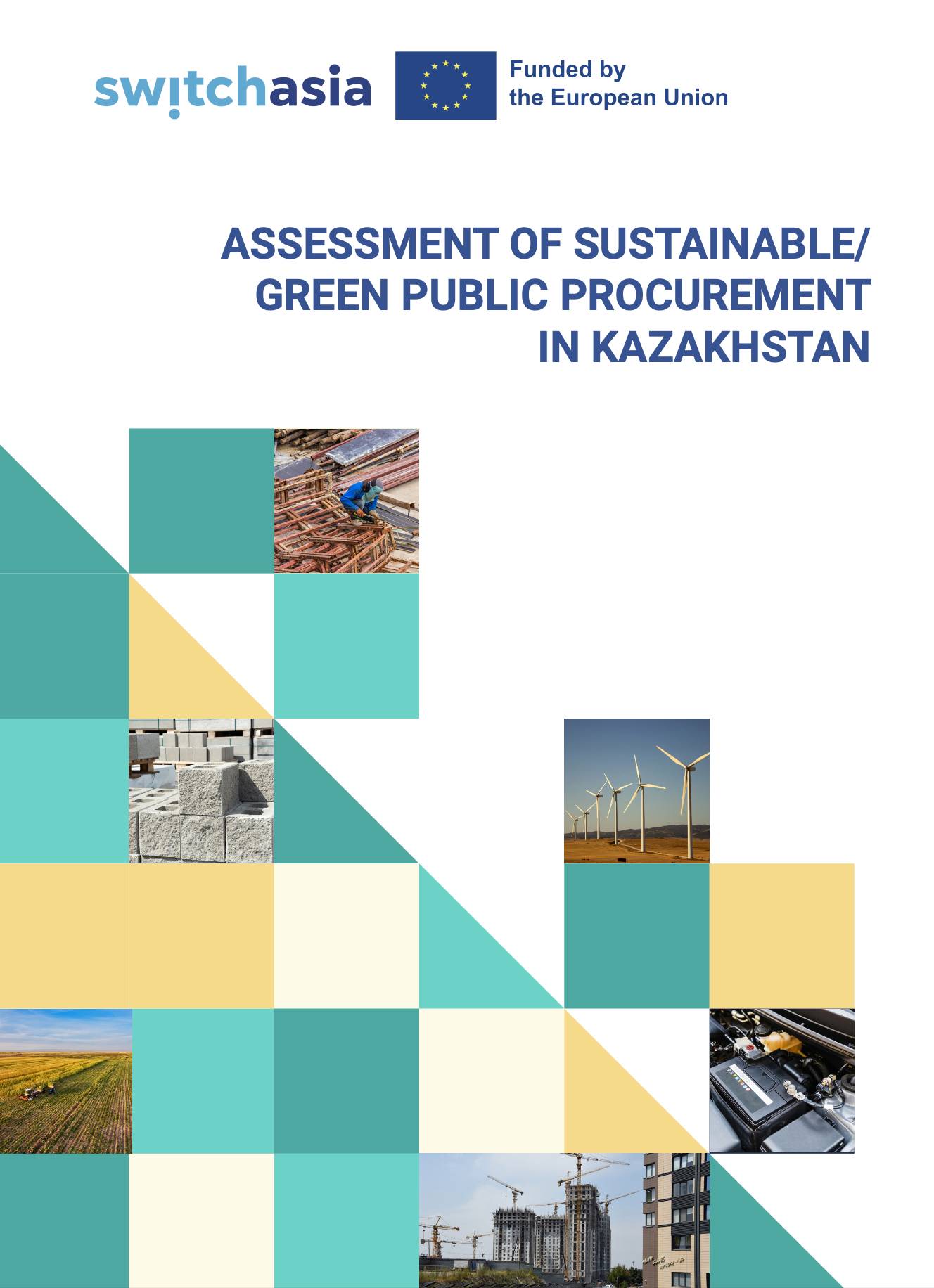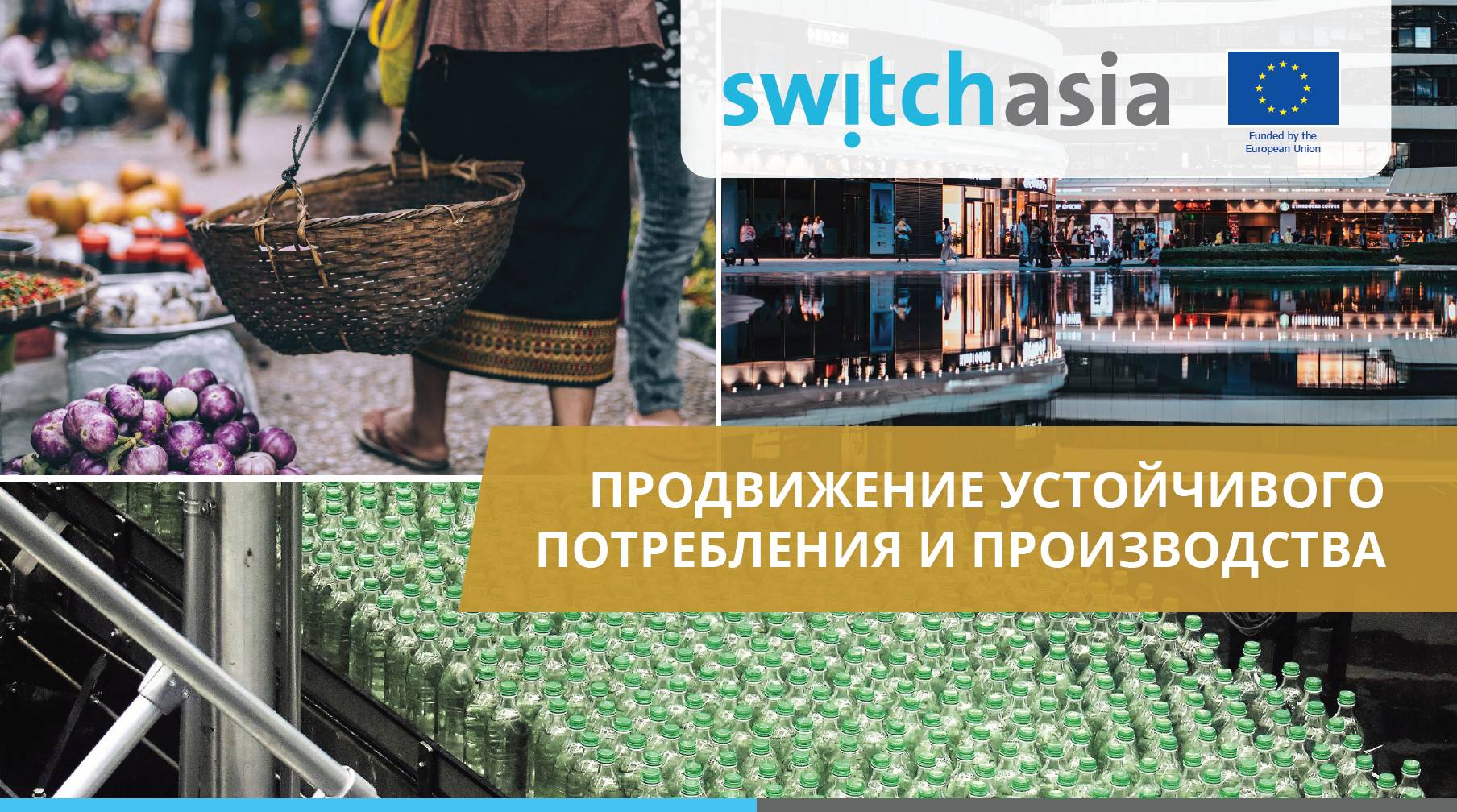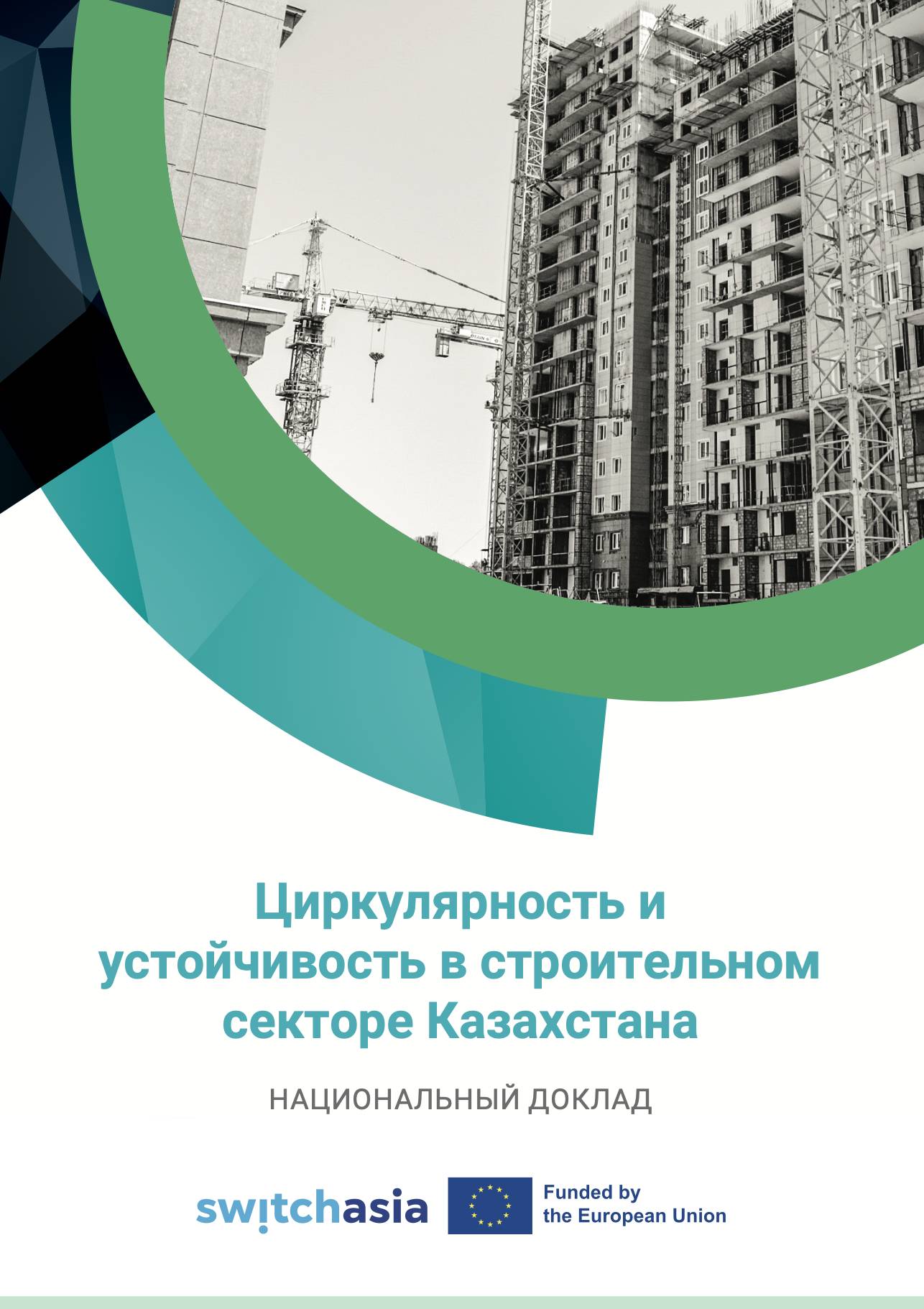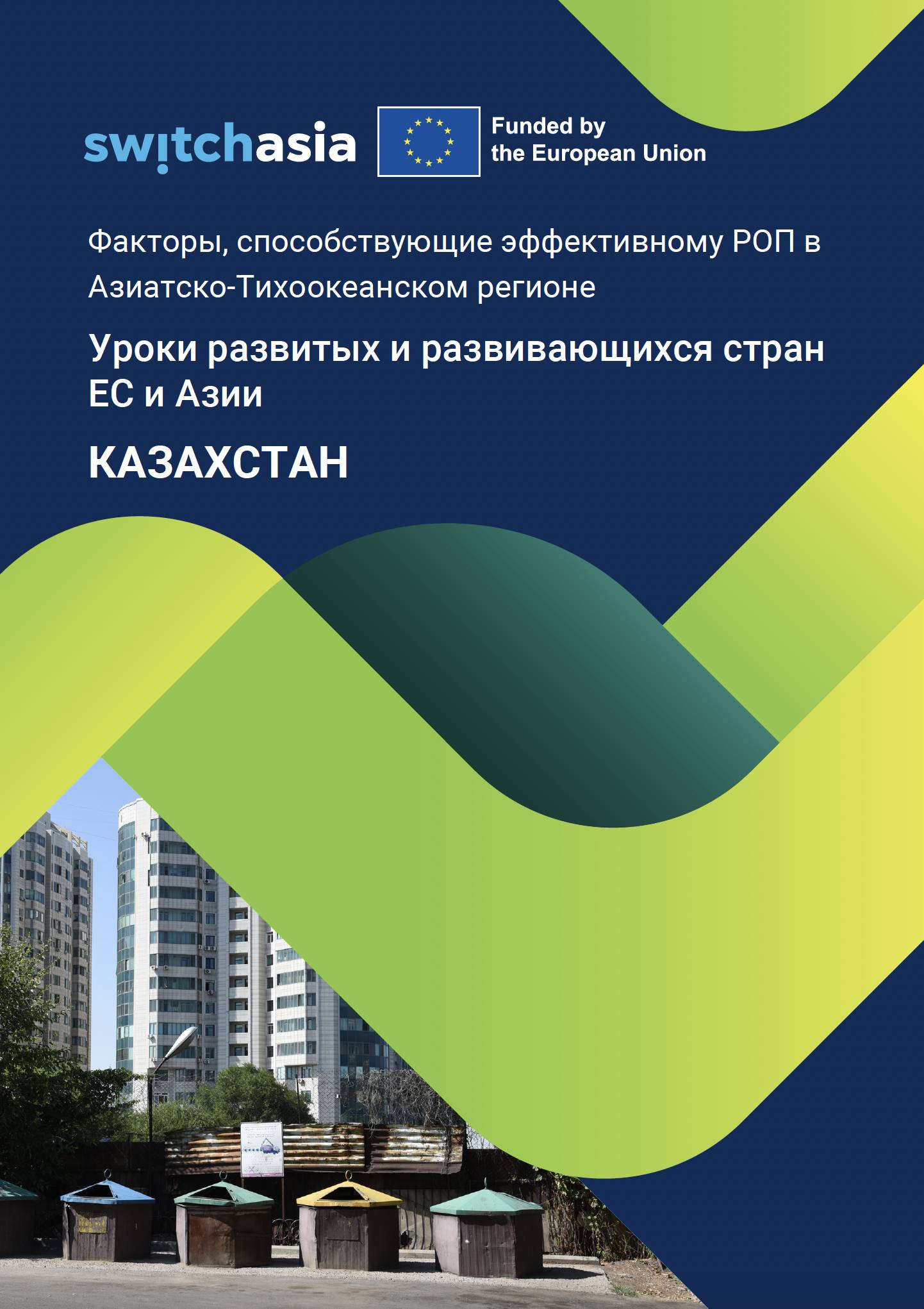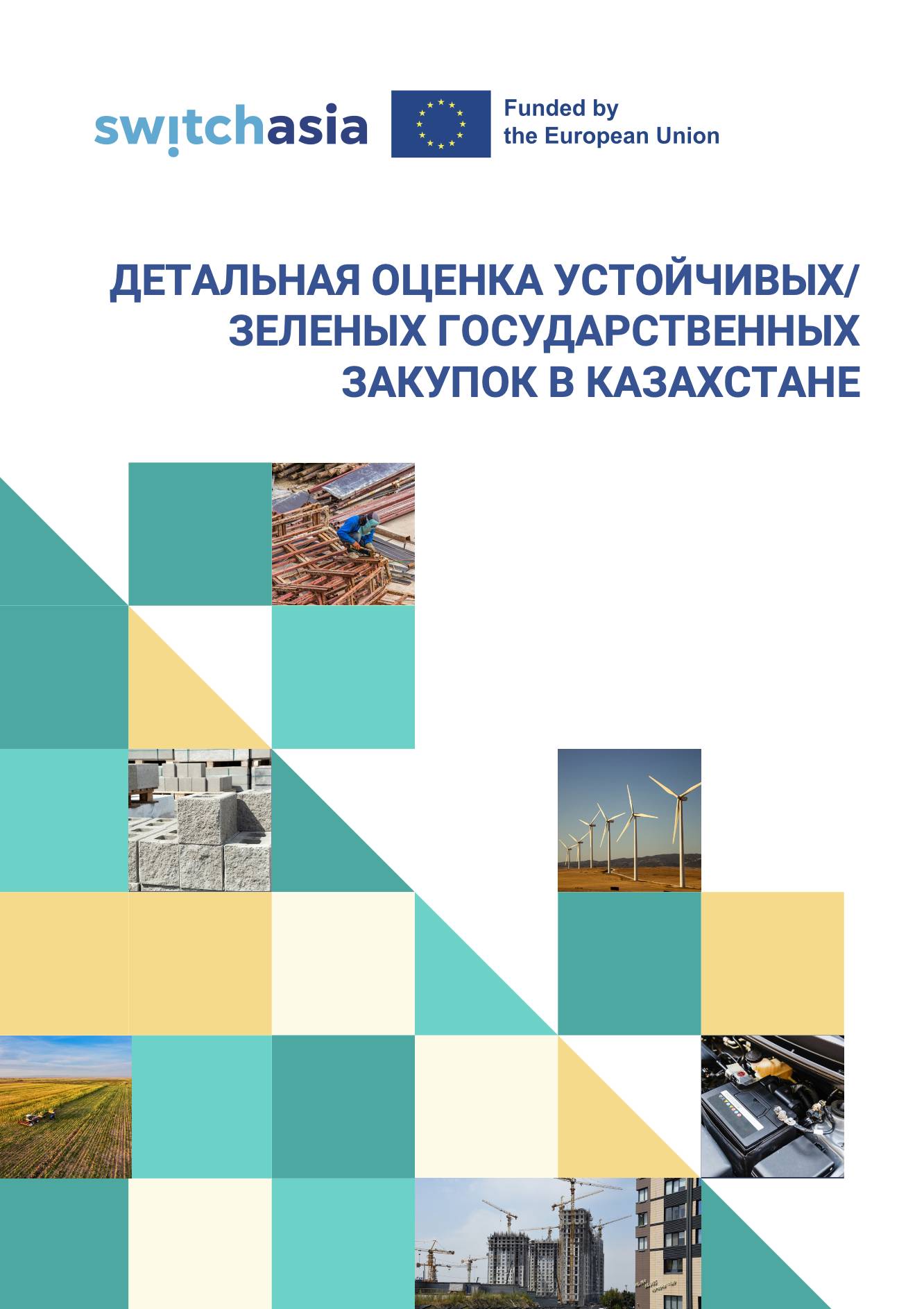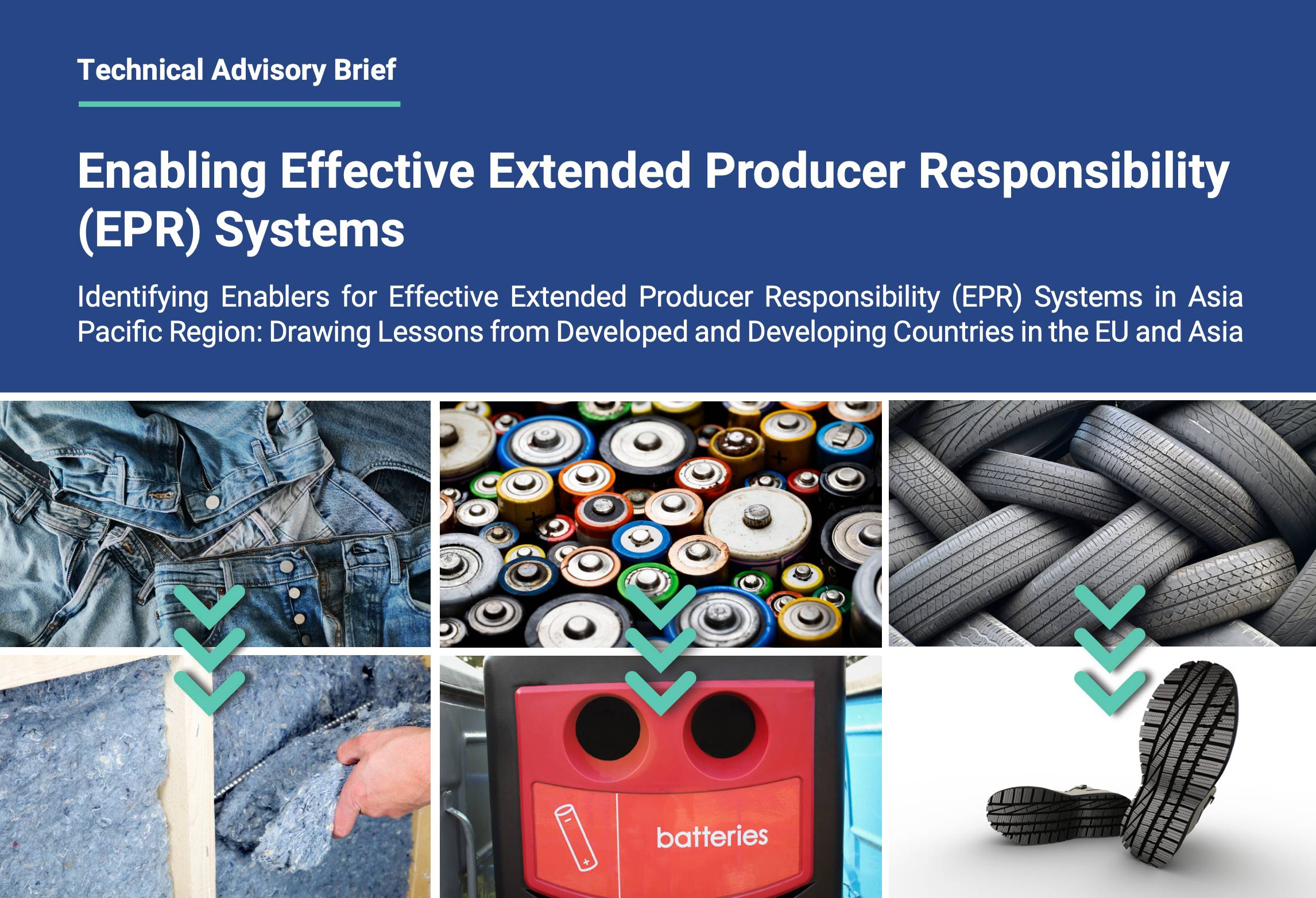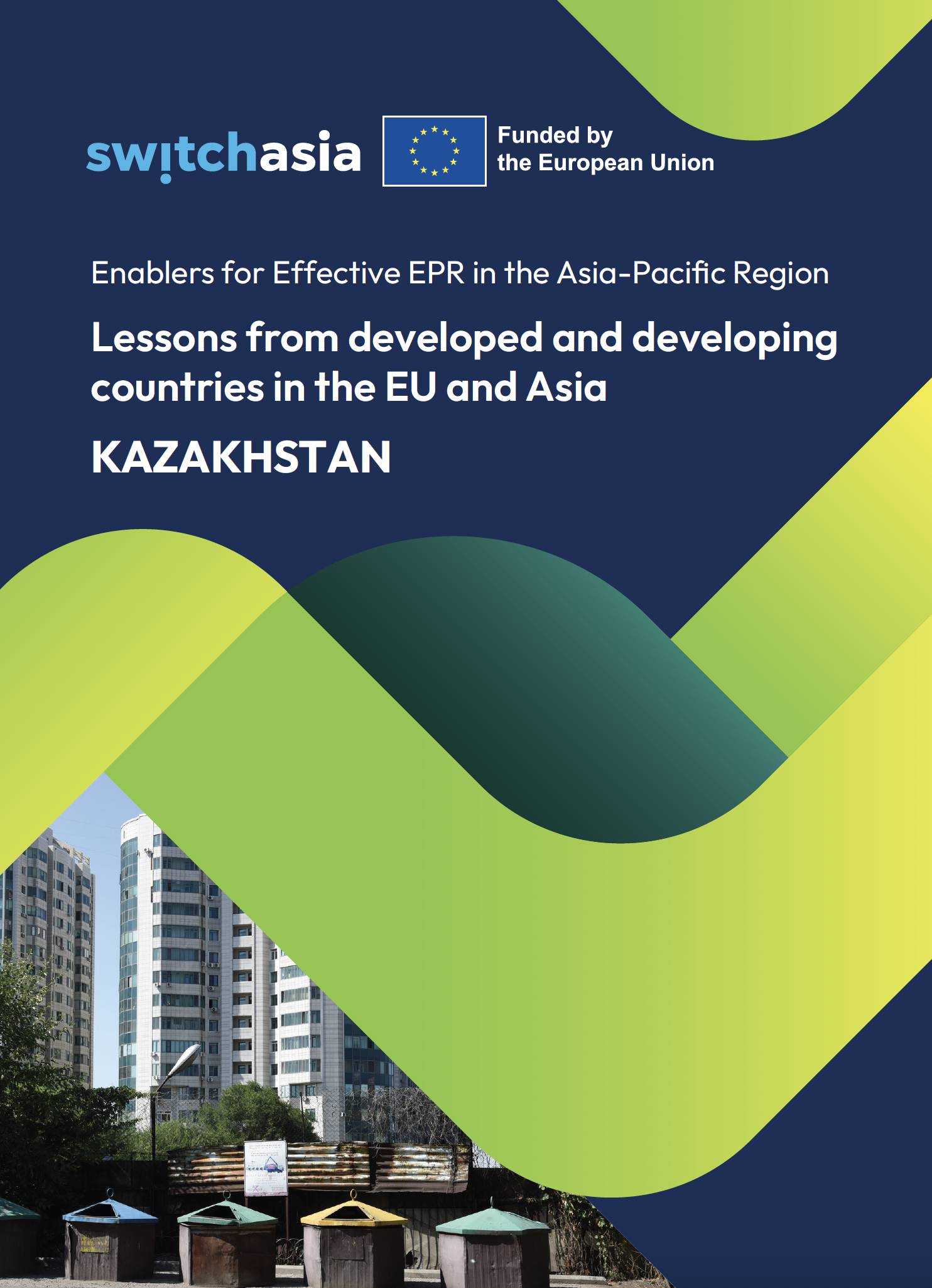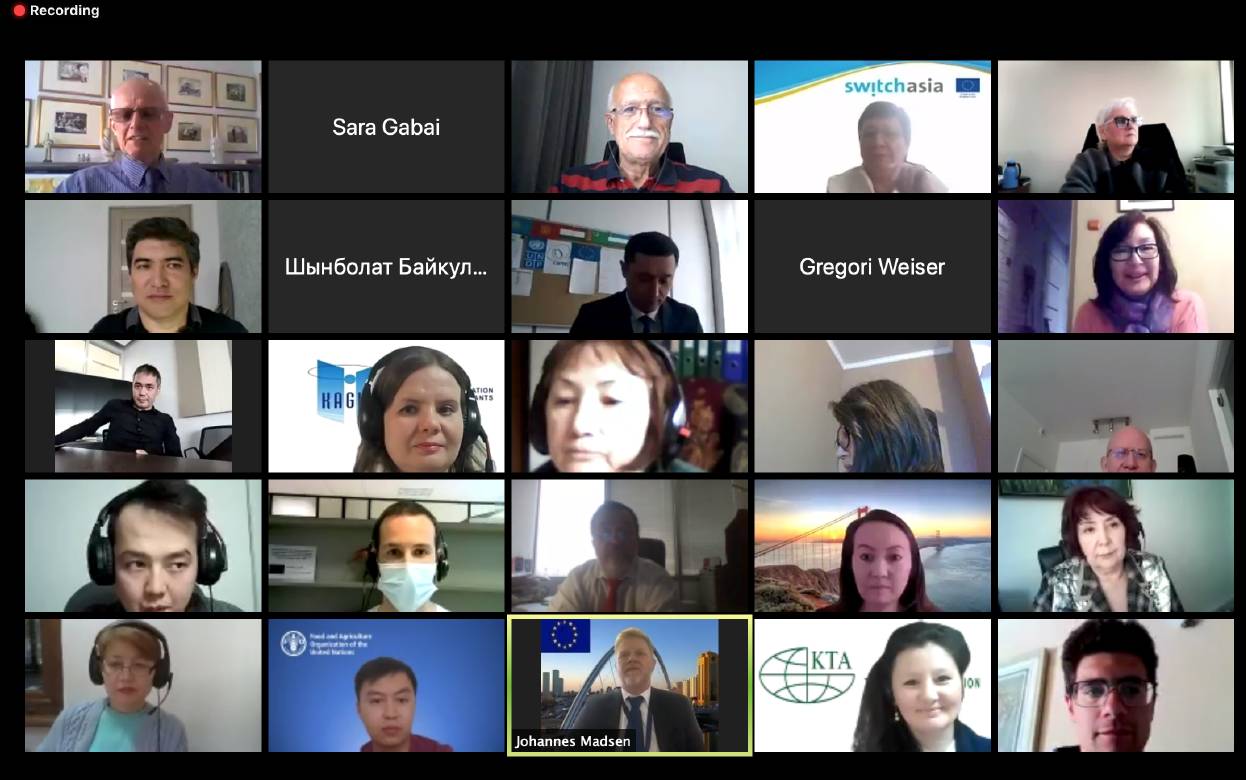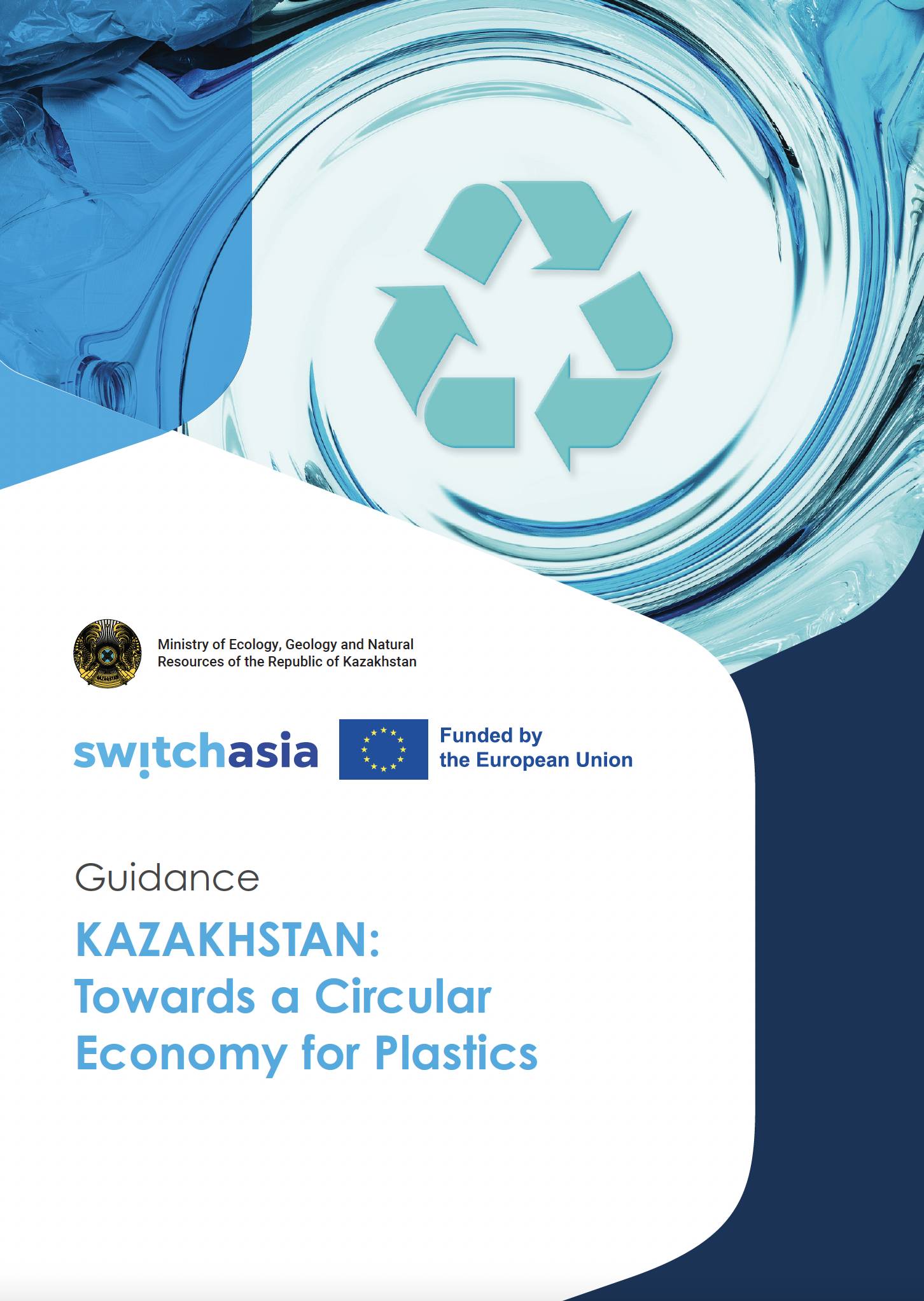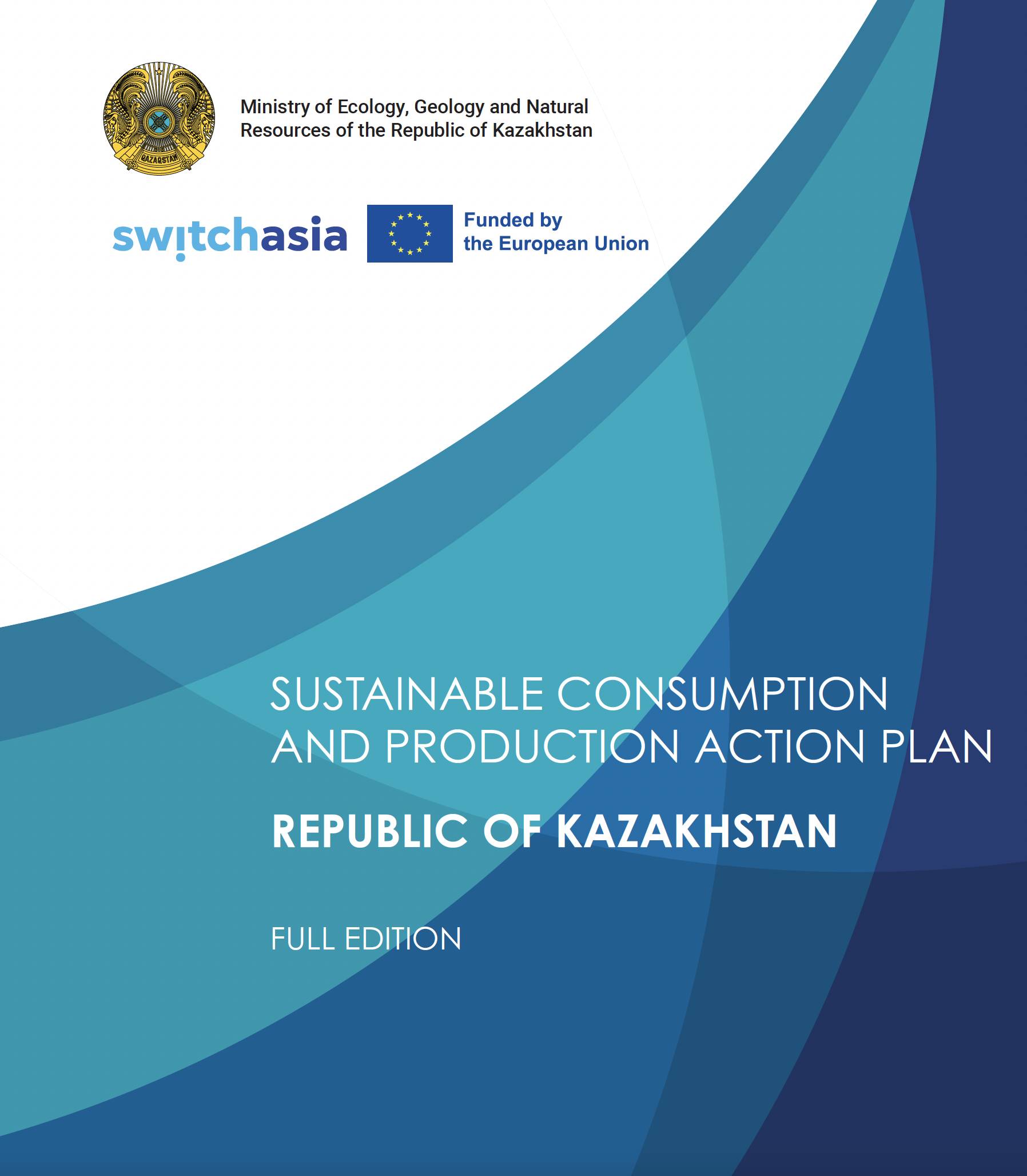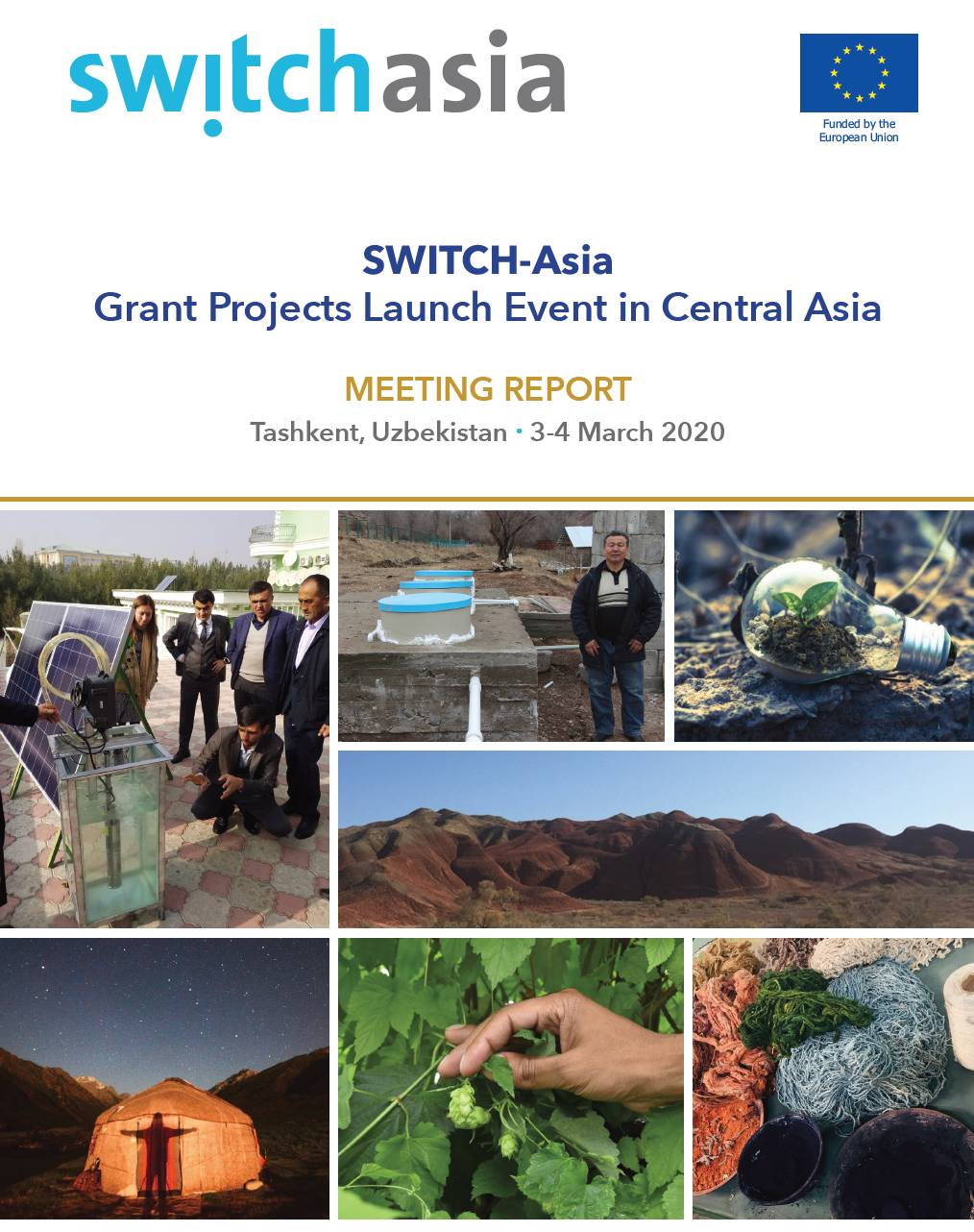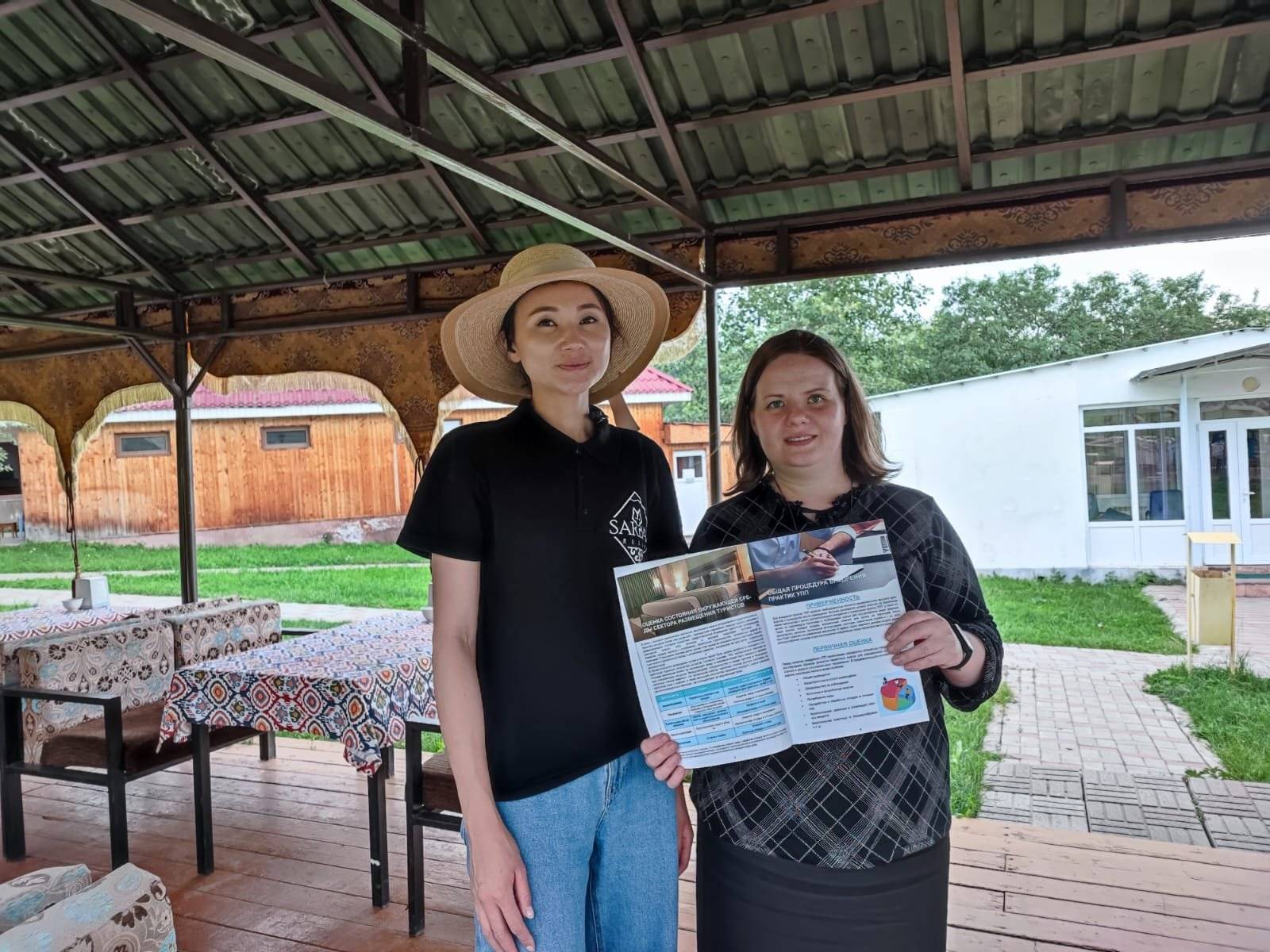
SCP Policy: Perspectives from SWITCH-Asia PSC
Kazakhstan, situated in Central Asia, is the ninth-largest country in the world by land area, with a population of approximately 20.59 million people as of 2024, according to the World BankIts economy, driven by vast natural resources such as oil, gas, and minerals, has positioned it among upper middle-income countries with a GDP of USD $220.62 billion in 2022. However, by IMF standards, Kazakhstan is classified as a developing country due to its relatively low economic diversification and reliance on natural resource exports, particularly fossil fuels. Fossil fuels and related industries constitute a substantial portion of Kazakhstan's GDP. Estimates suggest that oil and gas alone account for approximately 16–20% of GDP, with broader extractive industries (including coal and minerals) contributing even more. When factoring in fossil fuel-supporting industries, such as refining, petrochemicals, and transportation, the total contribution likely exceeds 25–30% of GDP. Furthermore, fossil fuel exports make up nearly 60% of Kazakhstan's total export revenues, underlining the sector's critical role in the economy. As of 2025, the country is among the top ten resource holders, when combining oil, gas and coal reserves and the world’s largest producer of uranium.
Due to the country’s relatively high education and health achievements, it is considered highly developed under the UN Human Development Index (HDI), scoring 0.81. Its income inequality is relatively low, while wealth distribution reveals significant inequality, with the wealthiest 1% controlling 29.2% of the nation’s assets, while the bottom 50% holds 4.6% of the country's wealth, which is lower yet comparable to the U.S. and Germany.
Kazakhstan has made strides toward sustainable consumption and production (SCP) policies. The long-term “Strategy of the Republic of Kazakhstan until 2050” was launched in 2012, which aims at positioning the country as one of the top 30 most developed nations globally by 2050. In 2013, it launched the "Concept for Transition towards a Green Economy until 2050", developed with UNDP, which outlines a three-stage implementation plan focusing on resource efficiency, renewable energy, and sustainability. In addition, an “SCP Action Plan” was developed under a SWITCH-Asia technical advisory project in 2022, and it aligns with SDG Target 12.1 by promoting sustainable consumption and production patterns by way of a 10-Year Action Strategy.
The country has introduced various SCP-related policies, including the Extended Producer Responsibility (EPR) framework in waste management, Green Public Procurement (GPP) standards for recycled materials, and a national green building standard. Other initiatives include the development of Best Available Techniques (BATs) for industry and the approval of a green project classification system in 2021 to facilitate green financing.
In Kazakhstan, the national ministries covering SCP related issues are: the Ministry of Ecologyand Natural Resources, the Ministry of Energy, the Ministry of National Economy, the Ministry of Agriculture, and the Ministry of Industry and Infrastructure Development. Kazakhstan’s Council for Green Economy has played a key role on environmental initiatives including the issuance of a new Environmental Code in 2021, which also features a chapter on climate change adaptation and mitigation. Updated in 2025, it coordinates efforts across priority economic sectors, with ministries such as Ecology, Energy, National Economy, and Agriculture playing key roles. The "Taza Kazakhstan" Concept (2024–2029), seeks to strengthen environmental awareness and increasing waste recycling rates to close to 40% by 2029.
Despite these efforts, challenges persist, such as limited private sector incentives for renewable energy investments, though investments have risen considerably over the past years. In addition, despite recent policy initiatives like a taxonomy of green projects, there is insufficient financing for green technologies, and the continued profitability of fossil fuels is detrimental to a change in course in the energy sector. Policies promoting energy efficiency, green building, and innovative financing mechanisms are needed to overcome these barriers.
Connection to the Global Agenda
Kazakhstan has integrated the Sustainable Development Goals (SDGs) into its State Planning System, supported by an EU-funded programme “The SDG Platform for Central Asia” implemented by UNDP in 2021-2024. This programme facilitated monitoring, transparency, and knowledge sharing to accelerate progress. In 2022, Kazakhstan presented its second Voluntary National Review (VNR), showcasing its progress on SDG implementation. Notably, 81% of the state budget was aligned with SDGs, but only 58.6% of targets received funding, highlighting budgetary misalignment.
Kazakhstan’s SCP efforts align with some indicators of SDG12, reporting on four out of 12 indicators related to pollution and waste management. The country is also reforming its procurement laws to incorporate green criteria, which could significantly enhance Green Public Procurement practices.
A Key Solution to Climate Change
Kazakhstan’s climate ambitions are anchored in its "Strategy on Achieving Carbon Neutrality by 2060," approved in 2023. This strategy outlines the long-term vision for transitioning to a low-carbon economy and achieving net-zero emissions.
Kazakhstan signed the Paris Agreement in 2016 and submitted a Nationally Determined Contribution (NDC), committing to reduce emissions by 15–25% below 1990 levels by 2030. Its revised NDC in 2023 maintains these targets and includes key sectors such as energy, industrial processes, agriculture, forestry, and waste. Kazakhstan’s commitment to achieving carbon neutrality by 2060 demonstrates its alignment with global climate goals. In 2024-2025, the Ministry of Ecology prepared the draft of its third NDC which is now under discussion with main Ministries and stakeholders.
To support these goals, Kazakhstan has implemented legally binding GHG emissions reduction targets and established the Eurasian Environmental Fund through the AIFC’s Green Finance Center. Efforts to align its Emissions Trading System (ETS) with the European model are underway, with 46% of energy production currently covered by the ETS. Additionally, green bond issuance and international funding have supported renewable energy projects, although these investments remain modest compared to fossil fuel financing. In addition, in 2023 Kazakhstan joined the Global Methane Pledge, working towards reducing its emissions by 30% until 2030.
Achieving carbon neutrality will require addressing key barriers, including long payback periods for low-carbon investments, limited private sector engagement, and insufficient financing for green technologies. The government must enhance policy frameworks, provide financial incentives, and foster public-private partnerships to scale up renewable energy and sustainable practices.
Priority Sectors
Kazakhstan’s priority sectors for SCP and climate action include energy, waste management, agriculture, and construction.
- Energy: Transitioning toward renewable energy is central to Kazakhstan’s climate strategy, with a target of 50% renewable energy by 2050. However, challenges such as long investment payback periods and the profitability of fossil fuels hinder progress.
- Waste Management: Despite comprehensive legislation, waste management remains inefficient at both industrial and municipal levels. Strengthening EPR frameworks and addressing plastic pollution are critical areas for improvement.
- Construction: The implementation of green building standards, such as guidelines for passive houses, and the promotion of energy-efficient infrastructure are essential for reducing emissions in the building sector.
- Public Procurement: The upcoming reform to Kazakhstan’s procurement law, incorporating green criteria, presents an opportunity to advance sustainable practices across sectors.
Kazakhstan’s SCP policies and climate strategies demonstrate a commitment to sustainable development, but further efforts are needed to overcome financial and institutional barriers. Enhanced coordination, innovative financing mechanisms, and private sector engagement will be crucial for achieving the country’s ambitious sustainability goals.
There are also private sector initiatives that take up SDG considerations, as well as integrate environmental and sustainability topics more broadly. For example, over 100 companies in Kazakhstan have joined the UN Global Compact, a company-led organisation in support of SDG achievement. Its financial sector actors have shown interest in integrating Environmental, Social, and Governance (ESG) principles into decision-making. Kazakhstan’s lively startup scene also comprises greentech enterprises, including renewable energy companies, thereby complementing the currently fossil-dominated sector.
A look back at milestones that shaped our work
2019
SCP Facility
- Preliminary assessment of SCP related policies, activities, needs/gaps, and opportunities;
- Organised a Multi-stakeholders Consultation on SCP on 12 November.
2021
- Reviewed existing policies, regulations, institutional arrangements on the national level related to SCP and green economy and whether they provide an adequate enabling environment for implementation.
- Reviewed programmes, regulations, initiatives and best practices at the national and international levels related to food/biodegradable waste management and analysed how SCP tools and the circular economy approach can be mainstreamed in the national policy.
- Developed an Analytical report outlining practicable measures for proper infrastructure for management of all types of municipal waste with a focus on food/biodegradable waste to identify opportunities for innovations using the circular economy approach.
2022
- Conducted a comparative analysis of the identified priorities of the new European Union Circular Economy Action Plan (CEAP) and six priority areas identified in the Concept for transition to a green economy.
- Developed National SCP Action Plan after conducting policy analysis, review of status quo, gaps, constraints, and opportunities on mainstreaming SCP into national policy and recommendations on priority areas/sectors.
- Preparation of alternatives appropriate for Kazakhstan, such as waste composting or biogas production depending on quality and volume of the food/biodegradable waste using CEAP and “A Farm to fork” Strategy.
- Preparation of recommendations for the proper management of food/biodegradable waste, considering the circularity in sustainable products and specifics of regional development and climate, composition of MSW as well as financing schemes.
- Preparation of a Guidance Report for the implementation of SCP tools and Circular economy approaches in Kazakhstan to illustrate potential for engagement of the EPR principles and practices for minimization of plastics leakage from both the consumption and production sides.


